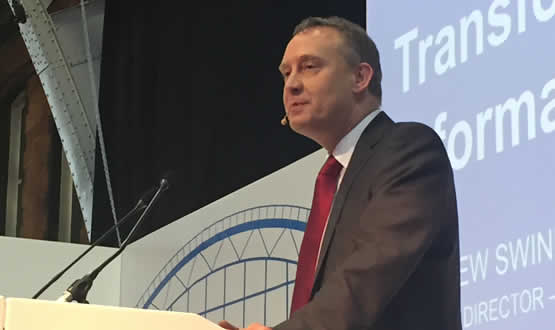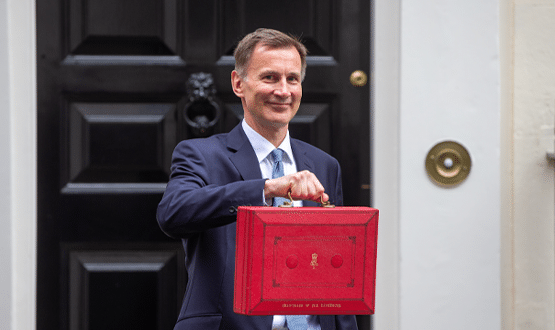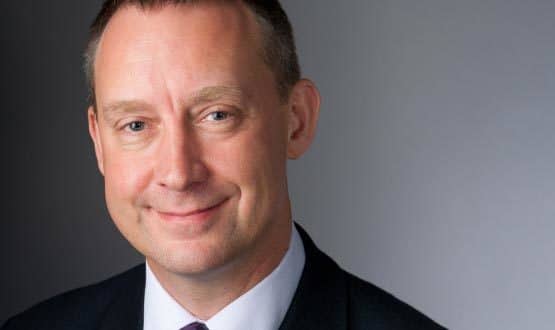Exemplars programme prompts mixed response
- 8 September 2016

Trusts that become “global” exemplars have been warned the label will not be an easy one, even with a £10 million top-up from government.
Matthew Swindells, NHS England’s national director for commissioning, operations and information, told a crowd at the Health and Social Care Innovation Expo in Manchester that it “was going to be hard” for the 12 selected trusts.
“I don’t think we have been generous. I think they have been bombed. Because the challenge of getting that done… is going to be hard and is going to have to be driven from the top,” he said.
Still, if being a global exemplar is going to be difficult, the immediate reaction of many Digital Health News was that it was going to be a whole lot harder for those trusts outside the ‘Ivy league’ of digitised organisations.
Long-term reader George385 suggested that “this has to be the most ridiculous policy yet to be put on the table?” and asked: “What are those trusts lagging behind (often because of lack of funding) supposed to do – shut up shop?”
Going global
The ‘global digital centres of excellence’ programme was well trailed before this week’s Expo. NHS England announced in October that it would be making a £100 million pot of money available for new centres, apparently from the £1.8 billion of ‘paperless’ money included within the Treasury settlement of £4.2 billion for NHS IT over the next five years.
It also announced that it had picked a shortlist of 26 trusts to bid for the money. As the Expo grew near, there were reports of frantic politicking among trusts and suppliers to make sure they were included.
Initially, it looked as if Cerner would emerge with the lion’s share of the prestigious programme; but in the end, four Cerner trusts and a mix of other ‘megasuite’ and ‘best of breed’ approaches were chosen.
The real surprise at the Manchester conference, however, came with the publication of Dr Robert Wachter’s review of NHS IT.
Wachter split NHS organisations into three groups: Group A, the “digitally strong” with international potential, Group B, the “less advanced but digitally fair”, which he argued could become digitally mature by 2020 and support further local efforts, and Group C.
Group C, which may cover as many as half of NHS trusts, Wachter described as not yet advanced enough to use new money efficiently. He suggested they should be left to ‘till the soil’ to make ready for big implementations.
Health secretary Jeremy Hunt and Swindells appear to have adopted these ideas enthusiastically. In addition to the 12 global digital exemplars, they announced at the Expo that another 20 national exemplars would follow, getting up to £5 million each – although it’s not clear if that will come from the £100 million pot or another one.
A side effect is that the much-heralded ‘paperless by 2020’ target (which had already been extended from Hunt’s initial call for the NHS to go paperless by 2018 three years ago) has been pushed out again, to allow for Group C to play catch up.
Not that national leaders were keen to admit that. Swindells said the 2020 goal remained in place, but also conceded that if the last trust was “systemically transformed” in 2023 there “wouldn’t be a lot of complaint”.
“If everybody steps up, we can do 2020 but the reality is some organisations are a long way behind and need a lot of help,” he said. “There is going to be a start line you have to get over before we can invest in you.”
While initially “carrot” would be used to encourage trusts to get across the digital line, NHS England would revert to “stick” if necessary, he said.
The other half
While Digital News comments have worried about the Group C trusts, and whether they will ever see either carrot or stick, the reaction to the announcements from healthcare IT leaders and trusts picked has been much more positive.
Adrian Byrne, the director of informatics at University Hospital Southampton NHS Foundation Trust (one of the global digital exemplars) and chair of the Health CIO Network hosted by Digital Health, said in a statement: “We are at a very exciting stage in digital technology development in the health service.
“We are empowering patients to take more control over their healthcare and working towards the development of personalised medicine, as well as safer practices.”
Southampton has been working on a ‘best of breed’ strategy centred on an Emis Health patient administration system for the past 15 years.
It has developed a full electronic record in all critical care units; replaced paper patient chars with iPod Touch devices in an electronic observation system, runs an eDischarge summary programme, which allows for clinical documents to be sent electronically, links into the Hampshire Health Record and runs the My Medical Record, a personal online patient health record for patients.
Mark Blakeman, director of infrastructure and informatics at Wirral University Teaching Hospital NHS Foundation Trust, and a major Cerner site, spoke of his “pride” at being selected.
“I think it cements all our hard work and all of the effort that our organisation that the teams, both clinical and non-clinical on have really made to digitalise our hospital,” he said.
In terms of what Wirral would like in an international partner, Blakeman said one of the issues they would want to learn from and contribute to the field of population health. Wirral, was the first customer of Cerner’s population health management, HealtheIntent, outside the US in March this year.
Premier league or Johnson's paint league?
The full list of chosen trusts is: Wirral University Teaching Hospital, University Hospitals Birmingham, City Hospitals Sunderland, West Suffolk, Royal Free London, Oxford University Hospitals, Taunton and Somerset, University Hospitals Bristol, University Hospitals Southampton NHS foundation trusts, and Royal Liverpool and Broadgreen University Hospitals, Salford Royal Hospitals, Luton and Dunstable University Hospital NHS trusts.
Malcolm Senior, chief information officer at Taunton and Somerset NHS Foundation Trust, which has led on the implementation of IMS Maxims’ open source software, acknowledged there might be concern about the division of trusts proposed by Wachter and apparently now hardening into policy.
However, he said: “I think, whatever you do in the NHS, there’s no right way and there’s no wrong way. Whatever would have been announced today wouldn’t have met everybody’s needs.”
Senior said part of the money that his trust gets will be used to “buddy up” with hospitals who have done similar implementation.
“If you look at the Cerner sites, they can go to the States and go to hospitals that have implemented Cerner, but we can’t do that.” Development in apps and an e-prescribing solution were also on Senior’s wish list.
In his speech, Hunt suggested that the digital divisions might not last forever. He suggested that trusts might be promoted or demoted; likening this to football league promotion and relegation.
The new healthcare IT premiership is excited. The test of the new approach will be whether those in the Johnson’s paint league get to join them.




